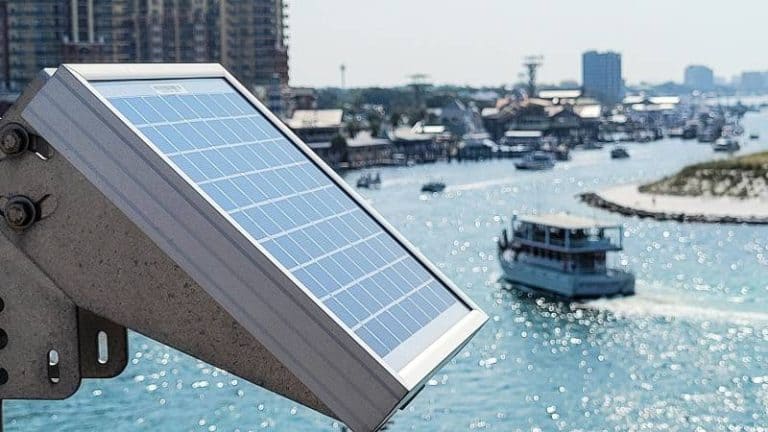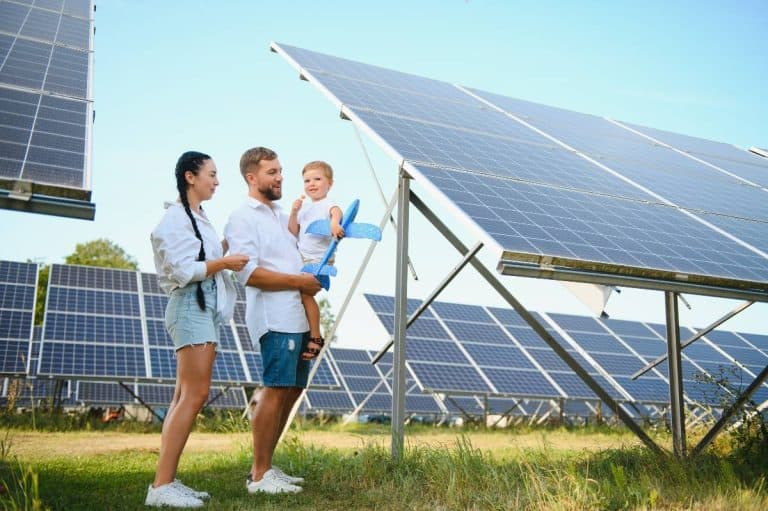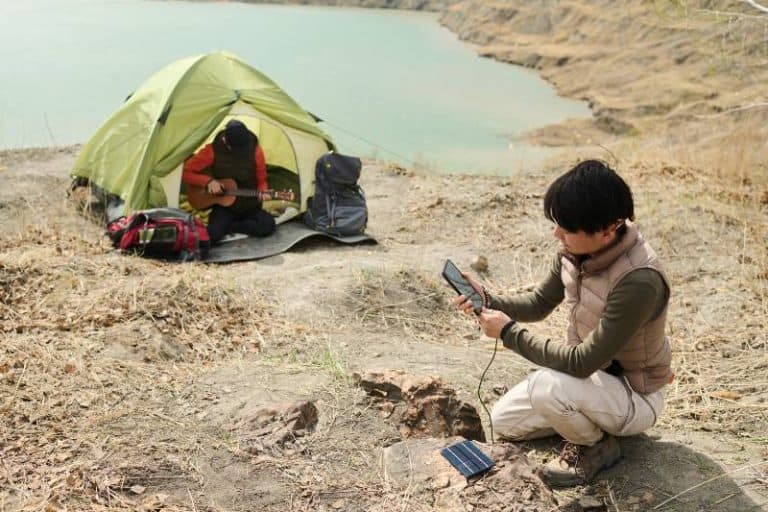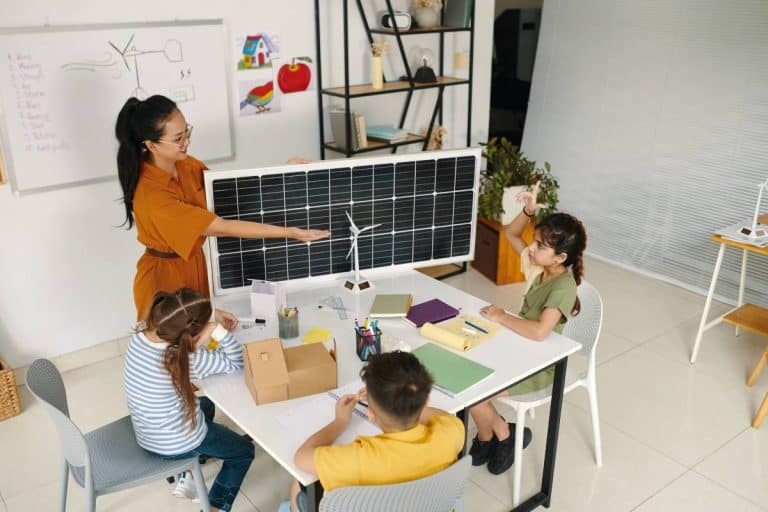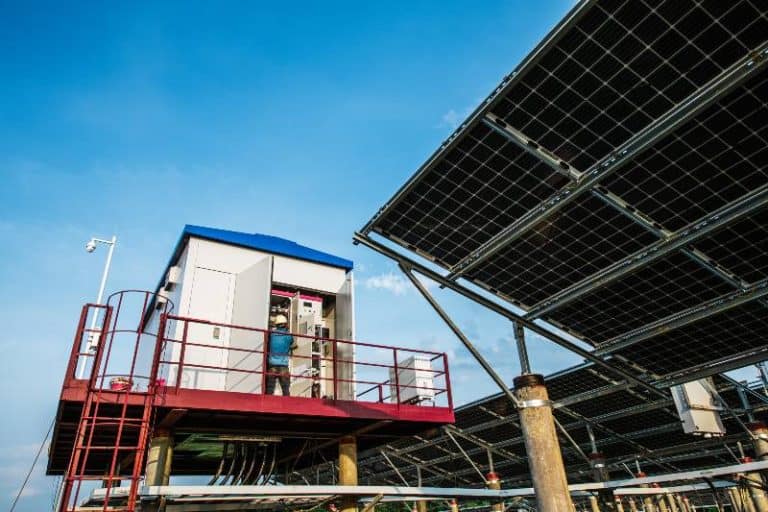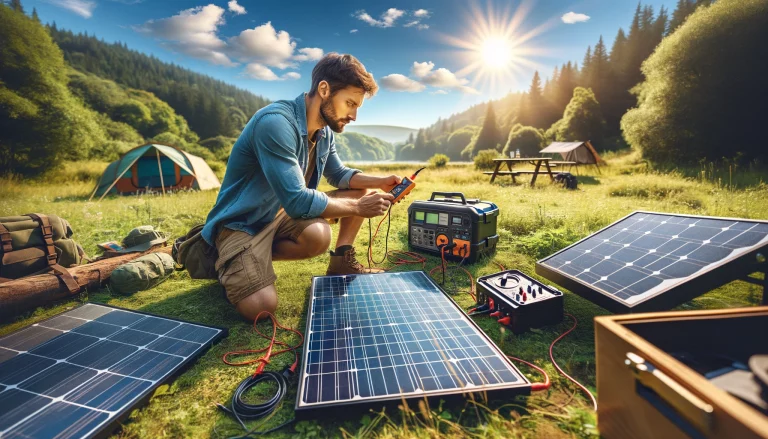Are Portable Solar Panels Waterproof Or Work In The Rain?
If you are looking for a renewable and sustainable energy source, you may have considered solar power. Solar panels can be installed on your roof or in your yard to provide power to your home or business. But what happens if it rains? Will the solar panels still work? In this blog post, we will answer that question: Are portable solar panels waterproof?
Solar panels can’t be hurt by water because they are waterproof. The rain actually helps because it washes away some of the dirt and dust that builds up on the panels over time.
Key Takeaways
- The majority of solar panels have a “solar panel max temperature” rating of 185 degrees Fahrenheit, meaning they can withstand temperatures well above the average ambient air temperature.
- An IP rating of 67 provides one of the highest possible levels of protection.
- The best portable solar panels are designed to work in all weather conditions, including rain and snow. However, because they rely on the sun on to generate power, they will not work as effectively in cloudy or overcast conditions.
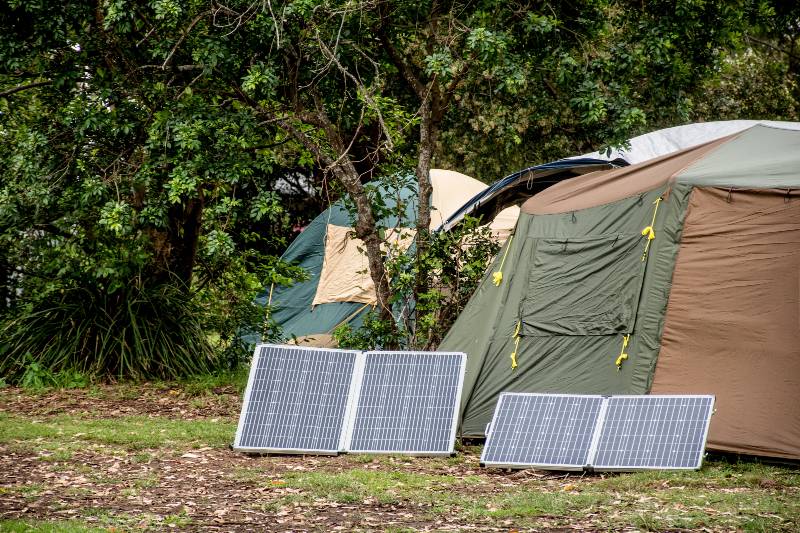
The Features of a Good Portable Solar Panel
Portable solar panels are an amazing way to get free energy from the sun. They can be used to charge batteries and power small devices, such as phones and tablets. There are many different types of portable solar panels available, but not all of them are good quality. In order to find a good portable solar panel, you must first know what makes them work well, here are some things to consider:
1. Ease of Use
A good portable solar panel should be easy to use. That means it should be easy to set up and take down, and easy to carry from one place to another. It should also be easy to store when not in use. Ideally, it would come with a storage bag or case that would protect it from being damaged.
2. Portability
Portable solar panels are an increasingly popular way to generate renewable energy and for good reason. They offer a clean, green way to power electronics, and can be easily transported from one location to another.
3. Power Output
If you’re looking for a portable solar panel to take on your next camping trip, be sure to choose one that has high power output. The best solar panels can make up to 500 watts of power every day, so you’ll have plenty of energy to charge your devices and keep the lights on at night.
Solar panels are an increasingly popular way to generate electricity, and there are a few different types to choose from. One option is polycrystalline solar panels, which are made up of multiple blocks of silicon. This makes them less expensive than other types of solar panels, but they are also less efficient.
4. Weatherproof
Solar panels are a great investment for those looking to use renewable energy, and one of the reasons they’re so popular is that they can work in any kind of weather. Whether it’s hot and sunny or cold and snowy, solar panels will still generate electricity. This is thanks to the fact that they’re made with special weatherproofing materials that keep them functioning in all sorts of conditions. So, if you’re thinking about making the switch to solar energy, you can rest assured knowing that your panels will work no matter what the weather is like outside.
If you’ve ever been on an RV road trip, you know that finding a good campsite can be half the battle. Once you’ve finally settled into a spot for the night, the last thing you want is to have to pack up and move because you’re draining the battery.
With portable RV solar panels, you can rest assured that you have a reliable power source. Solar panels are perfect for RVers because they are easy to set up and require no maintenance. Additionally, solar panels are environmentally friendly and can save you money on your energy bill. So, if you love to travel and are looking for a way to reduce your carbon footprint, consider investing in some RV solar panels and make sure to read portable solar panel reviews.
5. Waterproof
Solar panels that can be moved around should also be waterproof. Not just because they may be caught in a sudden rainstorm, but also because a backpacker or traveler’s bag is likely to get wet when crossing a river, hiking in the rain, or being stored in a vehicle.
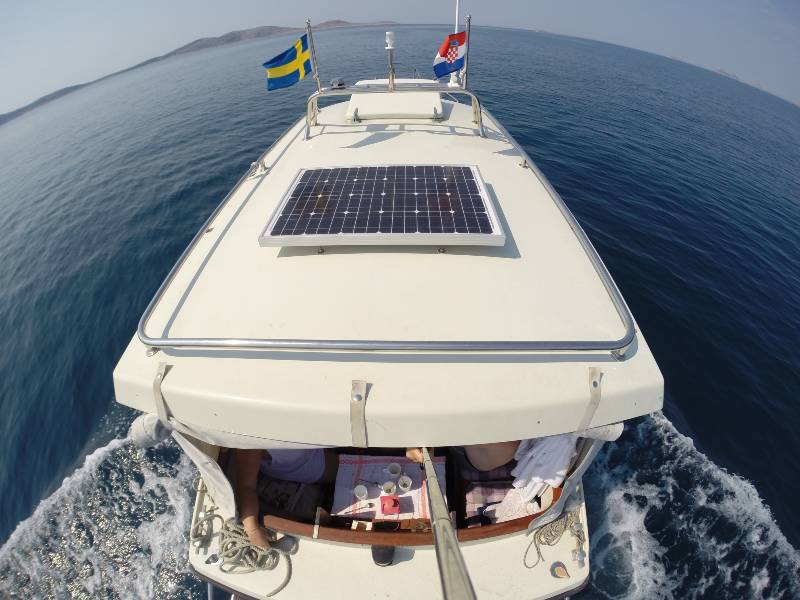
What are the benefits of waterproof portable solar panels?
Waterproof portable solar panels are an excellent option for those who need a reliable source of power and don’t want to be tied down to a specific location.
Here are some of the benefits of using waterproof portable solar panels:
Great for water-related activities
Waterproof portable solar panels are popular because of the many benefits they offer. One of the most common uses for waterproof portable solar panels is on boats. The panels are perfect for charging devices and accessories used for boating or fishing. And since you’re surrounded by water, the chances of your solar panel getting wet go up exponentially. But with a waterproof solar panel, you don’t have to worry about it getting wet and damaged.
What Makes Portable Solar Panels Waterproof?
Portable solar panels component
Solar panels are electronic devices, and as such, they have the same vulnerabilities as any other electronic device when it comes to being damaged by the environment. The presence of water, moisture, rain, or snow can all result in significant issues for electronic devices. Solar panels may be left exposed to the elements for as long as thirty years and must withstand the spring, summer, fall, and winter seasons. As a result, it is essential that they are resistant to damage caused by water.
Solar panels are impervious to water damage as a result of the use of a diverse range of materials in the construction of the outer casing that surrounds the solar cells and other internal components.
- The panels are shielded from the outside world by a sheet of glass that is mounted on the front.
- The internal wiring is shielded from the elements by a polymer sheet on the back of the device.
- Both components are held together by a metal frame.
- The use of glue that acts as a sealant helps to ensure that the casing remains dry.
Most stationary solar panels are made up of the same basic parts, and most portable solar panels use these same parts too. However, because some portable panels aren’t sealed as well as fixed panels, it is crucial that you research which companies offer weatherproof portable solar panels that won’t disappoint.
What are the effects of extreme weather on portable solar panels?
Solar panels are designed to withstand high temperatures, making them an ideal way to generate energy from the sun. The majority of solar panels have a “solar panel max temperature” rating of 185 degrees Fahrenheit, meaning they can withstand temperatures well above the average ambient air temperature.
However, because solar panels are constantly exposed to sunlight, they can become much hotter than the air around them. While this may seem like it would cause damage to the panels, they are actually constructed to withstand these high temperatures. As a result, solar panels are an extremely effective way to harness the power of the sun.
Can portable solar panels work in the rain?
Waterproof portable solar systems are an important consideration for anyone who plans to use them in a wide range of settings. Not only can they be caught in a sudden rainstorm, but they may also be exposed to moisture when stored in a backpack or vehicle.
In addition, waterproof solar panels are more resistant to damage from the elements, making them a more durable investment. And because they don’t require a separate battery pack, they’re lighter and easier to transport. Whether you’re an avid hiker or a casual camper, waterproof solar panels give you the peace of mind that comes with knowing your investment is safe.
Why are waterproof solar panels important?
Waterproof solar panels are essential for anyone who wants to use them in wet or humid conditions. Without a waterproof coating, the solar cells and other components would be susceptible to water damage, which could render the panel useless. A waterproof solar panel is also important for anyone who plans on using its panel in an outdoor environment, as it will protect the panel from the elements and extend its lifespan.
How to Tell Which Solar Panels Are Waterproof
It’s important to check the specs of solar panels to see if the panel is rated as waterproof. Solar panels that are completely waterproof will have an IP rating of 67 or higher. An IP rating of 67 provides one of the highest possible levels of protection against water and other liquids, including the ability to withstand immersion in water up to a depth of one meter.
This is an important consideration, especially if you live in an area that experiences a lot of precipitation. With a waterproof solar panel, you’ll be able to rest assured that your investment will be protected against the elements.
Who makes the best waterproof portable solar panels?
Jackery Portable 100W Solar Panel – Best Seller and Most Trusted Brand
If you’re looking for a reliable and affordable option for a waterproof portable solar panel, the Jackery Portable 100W Solar Panel is a great choice. It’s one of the best-selling and most trusted brands on the market, and it comes equipped with two kickstands that can be securely positioned on any type of ground surface. You can begin drawing power from the sun to supply your Jackery power station after setting it up, which should only take a few seconds. When you’re venturing off the grid, you’ll appreciate how easy it is to transport thanks to the TPE rubber handle.
Should you buy a waterproof portable solar panel?
Yes, you should buy a waterproof portable solar panel if you plan on using it in wet or humid conditions. Waterproof solar panels are designed to withstand the elements and extend the lifespan of your panel. When you’re looking at solar panels, be sure to check the specs to see if the panel is rated as waterproof. A waterproof solar panel with an IP rating of 67 or higher will provide you with the highest level of protection.
Are Portable Solar Panels Waterproof FAQs
Can Jackery solar panels get wet?
Because the product is water-resistant to an IP67 standard, which helps it maximize the module’s lifespan, you shouldn’t let it get wet.
Are folding solar panels waterproof?
Solar panels are a great way to generate clean, renewable energy. However, they need to be properly cared for in order to work effectively.
One important question that many people have is whether or not solar panels can get wet. The answer is that it depends on the type of solar panel. Some solar panels are designed to be waterproof, while others are not.
Water-resistant solar panels are typically more expensive, but they can withstand exposure to the elements much better than their non-water-resistant counterparts. If you’re unsure about whether or not your solar panel can get wet, it’s best to consult the manufacturer’s instructions.
Are goal zero solar panels waterproof?
It’s compatible with most GOAL ZERO solar panels, as well as home power supplies that operate at 110VAC, automobile and other vehicle power ports that are 12VDC, and the majority of GOAL ZERO’s solar panels. It has an IP67 certification, which means it is both dustproof and waterproof.
Do all portable solar panels come with a waterproof covering?
There are some portable solar panels that do not come with a covering that is waterproof. Some portable solar panels do not include a waterproof cover, despite the fact that all solar panels ought to because they are designed to last for over 30 years outside in the elements.
Conclusion
Most solar panels on the market today are waterproof and can withstand rain, snow, and other weather conditions. With that said, it’s always a good idea to check with the manufacturer before purchasing to be sure. And if you live in an area with a lot of severe weather conditions, it’s worth investing in a panel that is specifically designed for those conditions.

